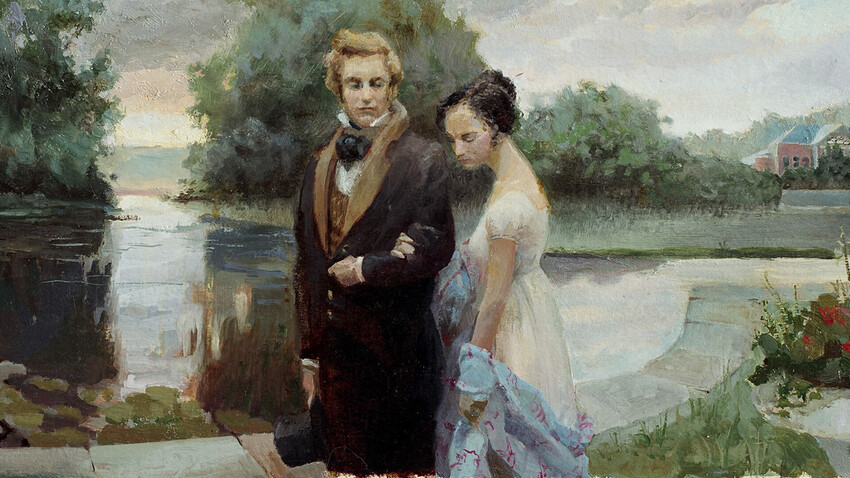
'Onegin and Tatyana'
Yuri Kushevsky (CC BY-SA 4.0)In world literature, there are many masterpieces that are hardly read by ordinary people, but have been enthusiastically analyzed by linguists and literary scholars for centuries.
‘Eugene Onegin’ is not among them. Despite the fact that volumes and volumes of various studies have been devoted to its parsing, the novel is also very much loved by ordinary Russian readers. Apart from the beauties of style and depths of meaning, it is simply an interesting read. And the feelings and thoughts of the characters continue to touch both modern hipsters and country girls.
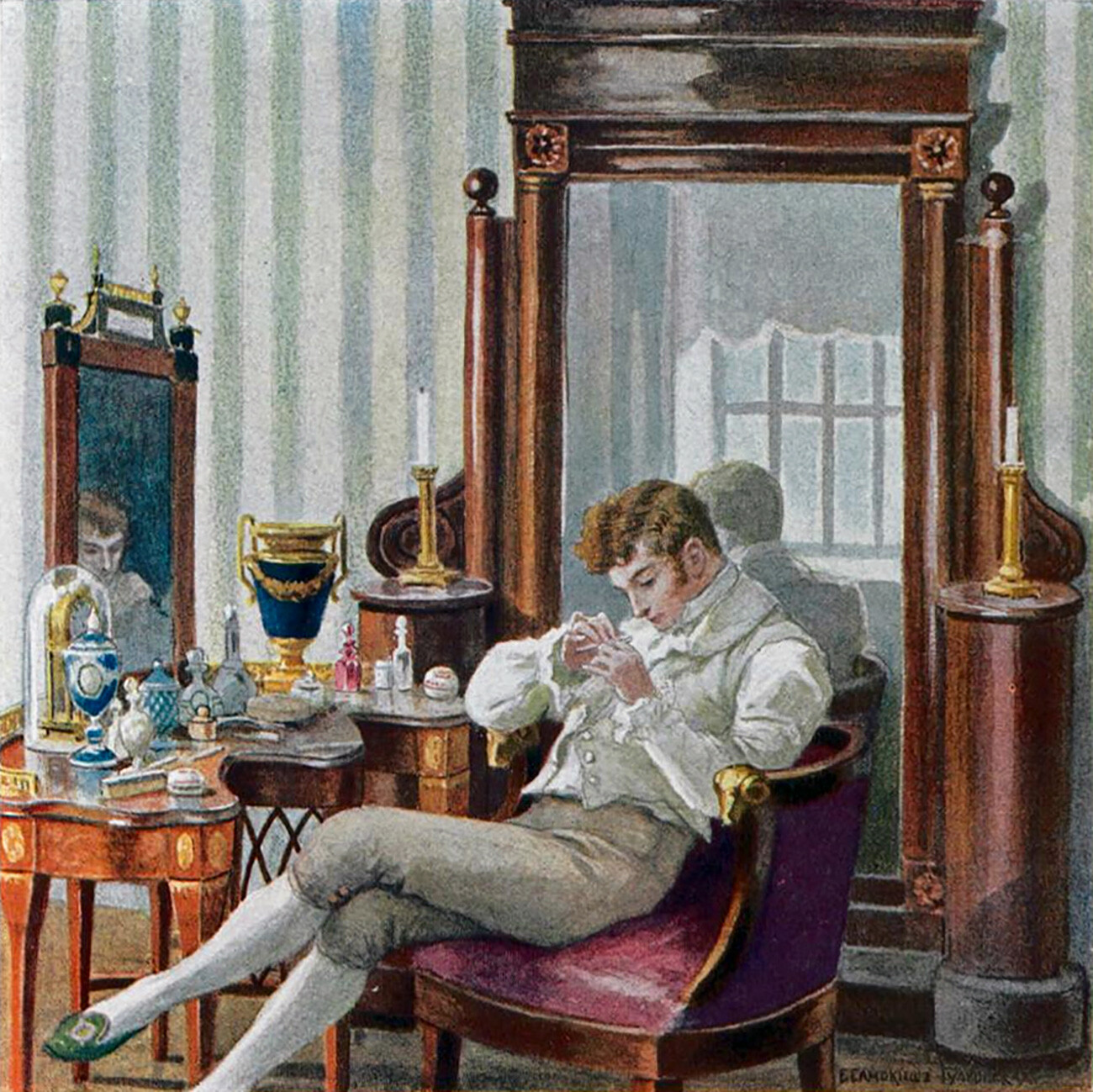
Onegin doing his nails
Illustration by Elena Samokish-SudkovskayaThe plot of the novel is intriguing. A wealthy nobleman named Eugene is still very young, but already tired of the social life and entertainment of St. Petersburg. He goes to the countryside, where he inherits an estate from his deceased uncle.
A bored Eugene meets an enthusiastic poet named Lensky, who introduces his new friend to his beloved Olga and her own sister Tatiana, who, in turn, falls in love with the enigmatic Onegin… Further on, Shakespearean passions on Russian soil are played out.
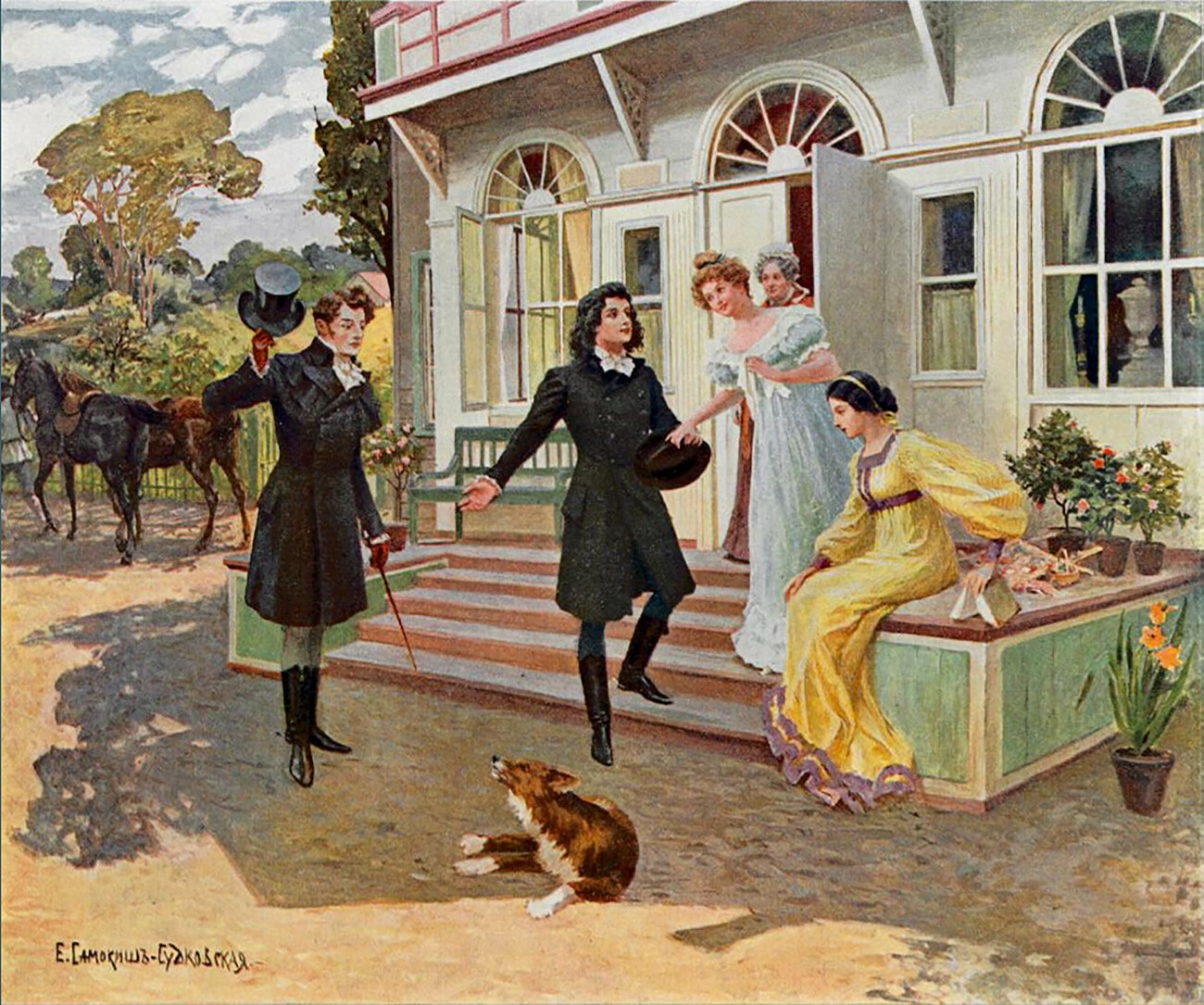
Onegin and Lensky meet Olga and Tatyana
Illustration by Elena Samokish-SudkovskayaRead our short summary here.
Pushkin began writing the novel in 1823, when he was not yet 24 years old, and completed it only eight years later in 1831. The work went into print chapter by chapter, like a fascinating series, and readers waited with bated breath for the next part. And the finale literally shocked the public.
Pushkin himself considered his extensive work on the novel a feat. “What a Pushkin, what a son of a bitch!” He would probably have said to himself at the end (in fact, he really said that after completing another work, the verse tragedy ‘Boris Godunov’).

Mikhailovskoye estate, where Pushkin wrote the biggest part of Onegin, is considered to be the novel's scenery
Pushkin's Mikhailovskoye Museum-Reserve‘Eugene Onegin’ is often referred to as "an encyclopedia of Russian life". It was Vissarion Belinsky, the most recognized literary critic in 19th century Russia, who labeled it this way. And it stuck with the novel, becoming an idiom of sorts.
In a relatively short (especially by Leo Tolstoy's standards) novel of 24,000 words (just over 200 pages of verse), Pushkin managed to show a complete picture of how Russia lived in the first quarter of the 19th century. He managed to show the whole cross-section of society of that time: he described the countryside nobleman's estate, the life of the peasants, the St. Petersburg high society and the patriarchal Moscow nobility.

"Onegin's Bench" in the Trigorskoye Estate
Alexei Kudenko/SputnikIn his novel, Pushkin goes through all the seasons and landscapes of the European part of Russia and he finds a capacious and memorable description for each. Pushkin also made a lot of philosophical and psychological remarks that instantly became aphorisms. Such as: “A man who's active and incisive can yet keep nail-care much in mind” or “The less we love a woman, the easier 'tis to be liked by her”.
Since the publication of the first chapter in 1825 and to this day, the novel fascinates the reader with the complexity of the composition, the variety of topics covered, scrupulous description of the details of everyday life and the depth of characters developed with outstanding skill.
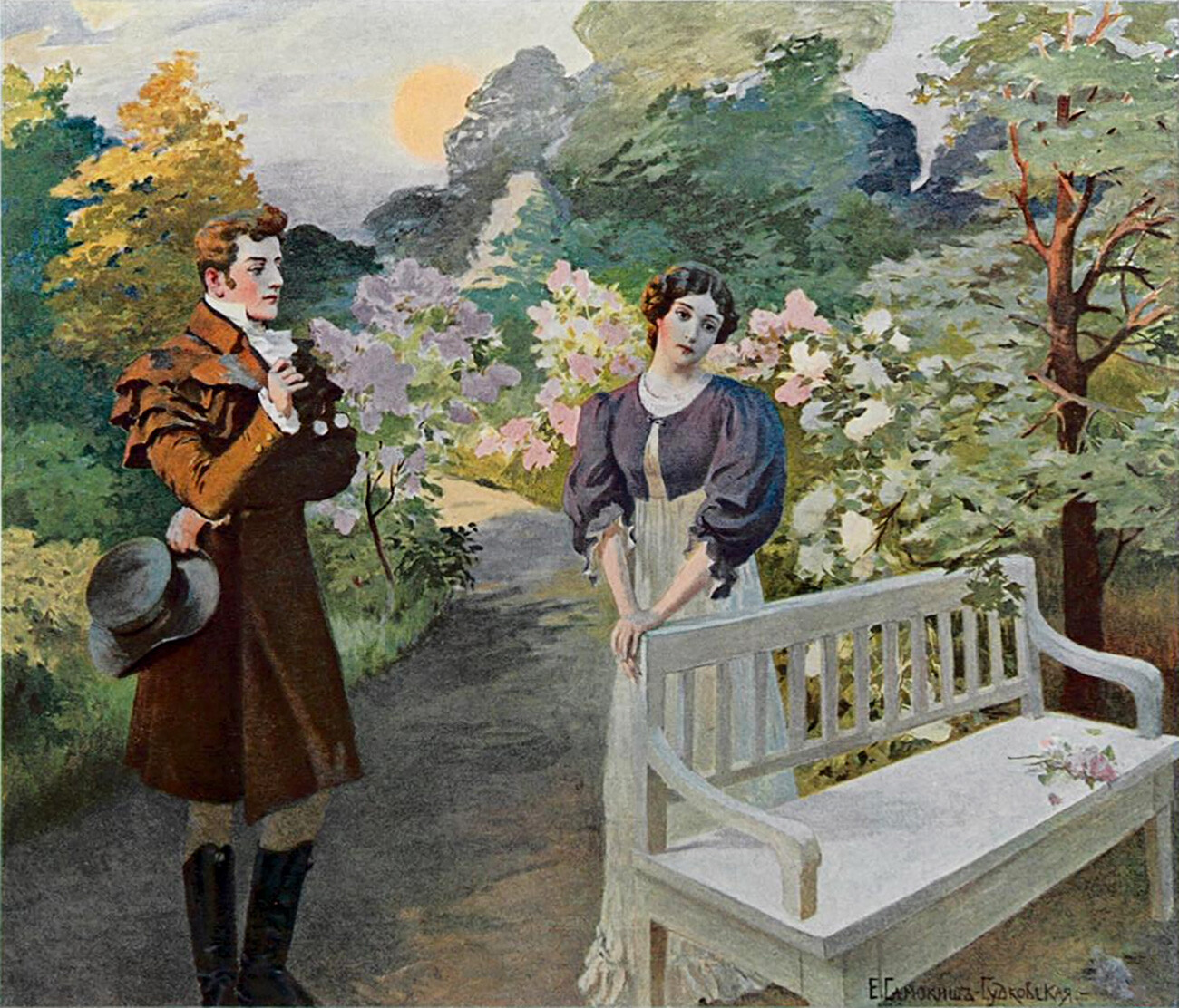
Tatyana and Onegin walking together
Illustration by Elena Samokish-SudkovskayaAlmost every Russian knows Tatiana's letter to Onegin by heart. If not in its entirety, then at least a few phrases. The young girl, living in a world of books and nature, makes a bold confession to the bored Byronic hero, who happened to be in her remote village. She realizes that perhaps he is a "treacherous tempter" and that it is a deception. But, she puts the decision of her fate in his hands.
My life till now was but a pledge,
Of meeting with you, a forward image;
You were sent by heaven of that I'm sure,
To the grave itself you are my savior…
Well, it is worth noting that Onegin very much appreciated such a brave act and, despite all his cynicism, did not take advantage of the immaturity of the young girl.
For Pushkin, the final touch of work on the novel was writing a declaration of love on behalf of Onegin himself (we will not reveal any spoilers, for whom it was written, if you do not know yet!).
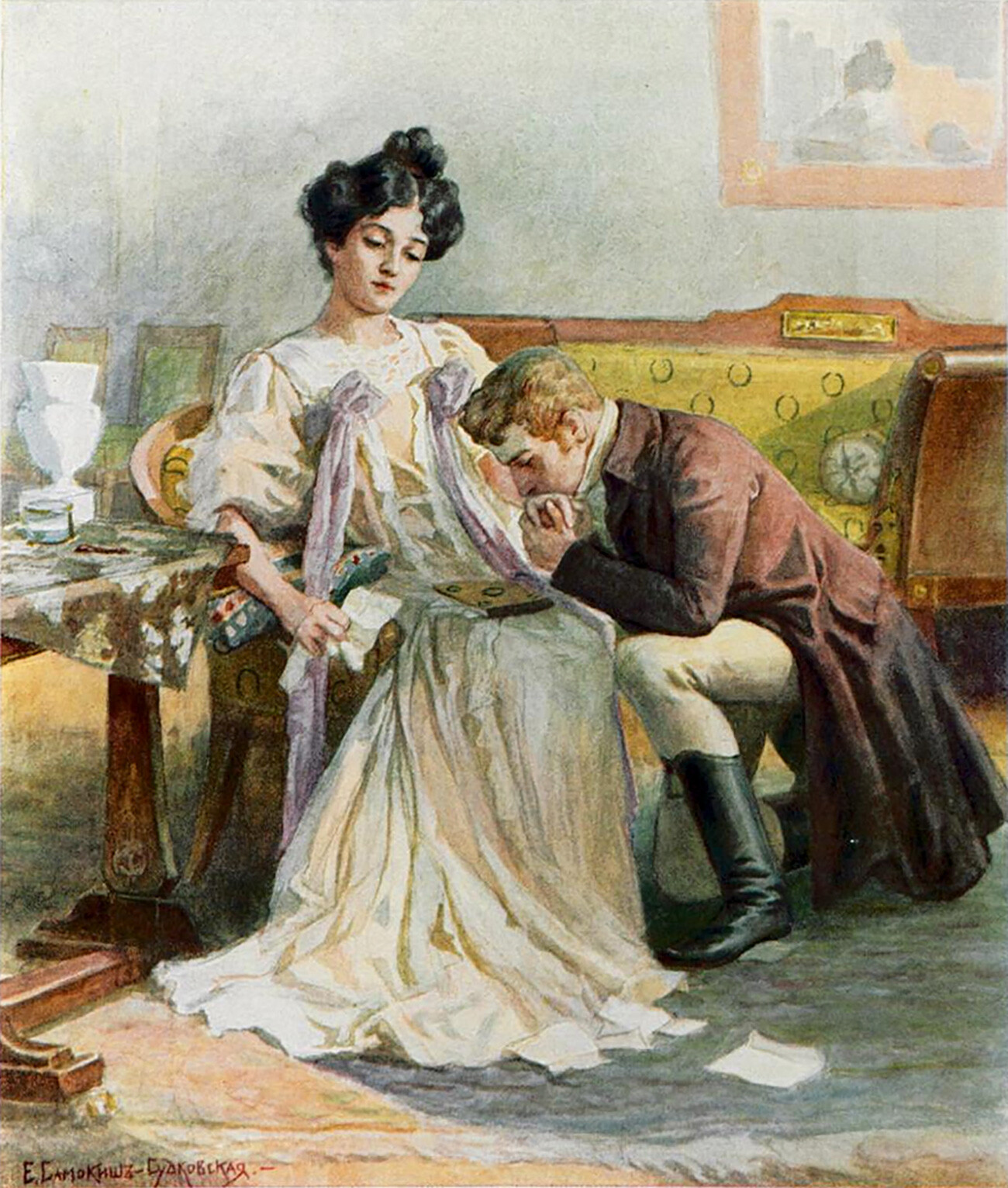
Onegin confessing in love
Illustration by Elena Samokish-SudkovskayaThis is already a letter of a man who is already wise with experience, but who, for the first time in his life, is truly blinded by love. And it reveals itself to the reader from a whole new side in a masterpiece letter of confession.
I know that my days are numbered already,
But in order to give them some small scope
I must in the morning be assured
Of seeing you each day and of having your word…
Mikhail Lomonosov and Alexander Sumarokov, considered the first Russian secular writers of the late 18th century, scolded European novels for being immoral and pointless.
But, there was no Russian novel at least comparable to them in quality, at that time.
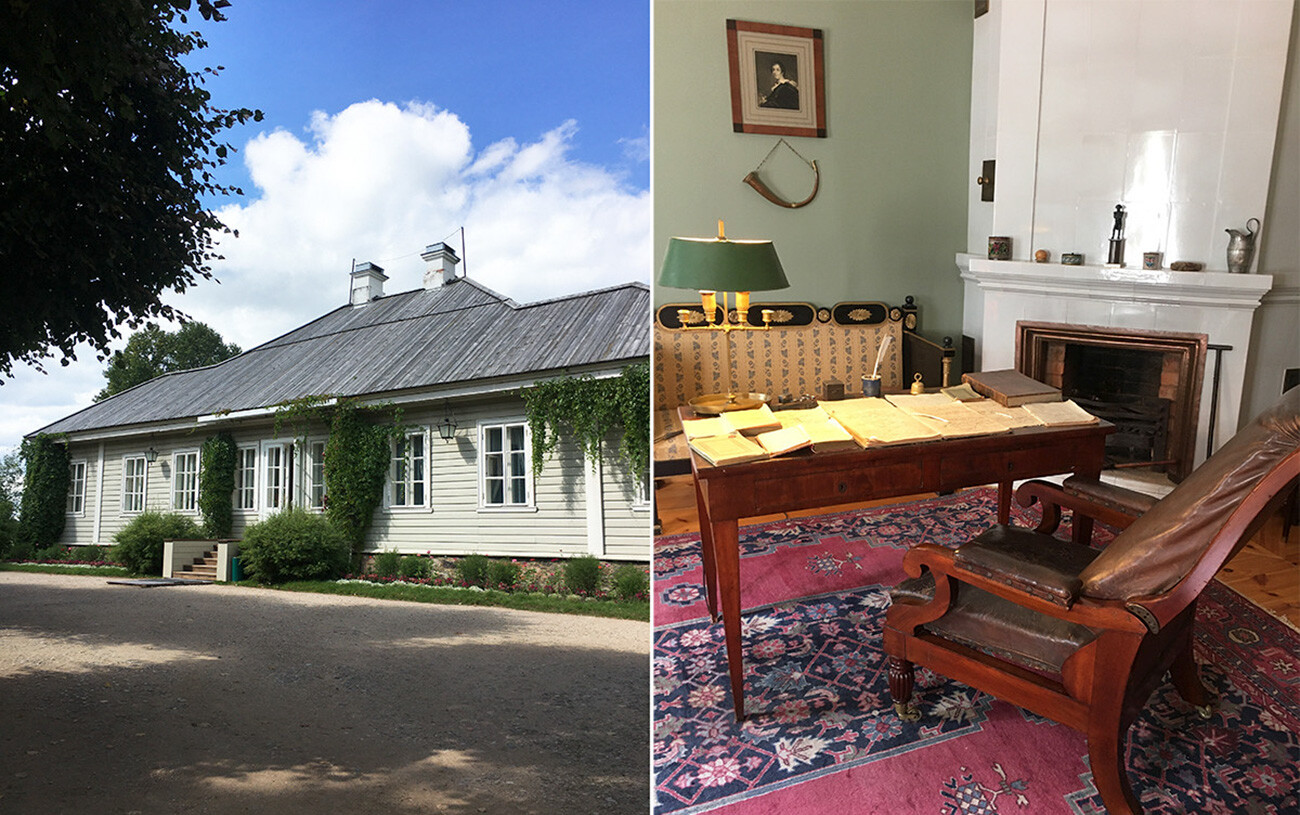
Mikhaylovskoye estate and Pushkin's working place
Alexandra GuzevaPushkin was, in fact, the creator of the ‘Russian novel’ and the new language in which it could be read. It is also one of the first realistic works of Russian literature to describe the lives of contemporaries (not faraway history) and everyday details, without excessive romanticization or sentimentality.
The verse structure and multifaceted content of the novel makes it both difficult to stage and screen.
Usually, directors who take up the task choose only a fragment or only a love line or even add some fantasy elements to the theme (as, for example, in the Vakhtangov Theater in Moscow, where Tatiana dances on a snowy stage with a bear…).
One of the most successful examples was Tchaikovsky's opera ‘Eugene Onegin’, where poems were set to opera parts and the symbiosis of Pushkin's text to music gave birth to a whole new masterpiece.
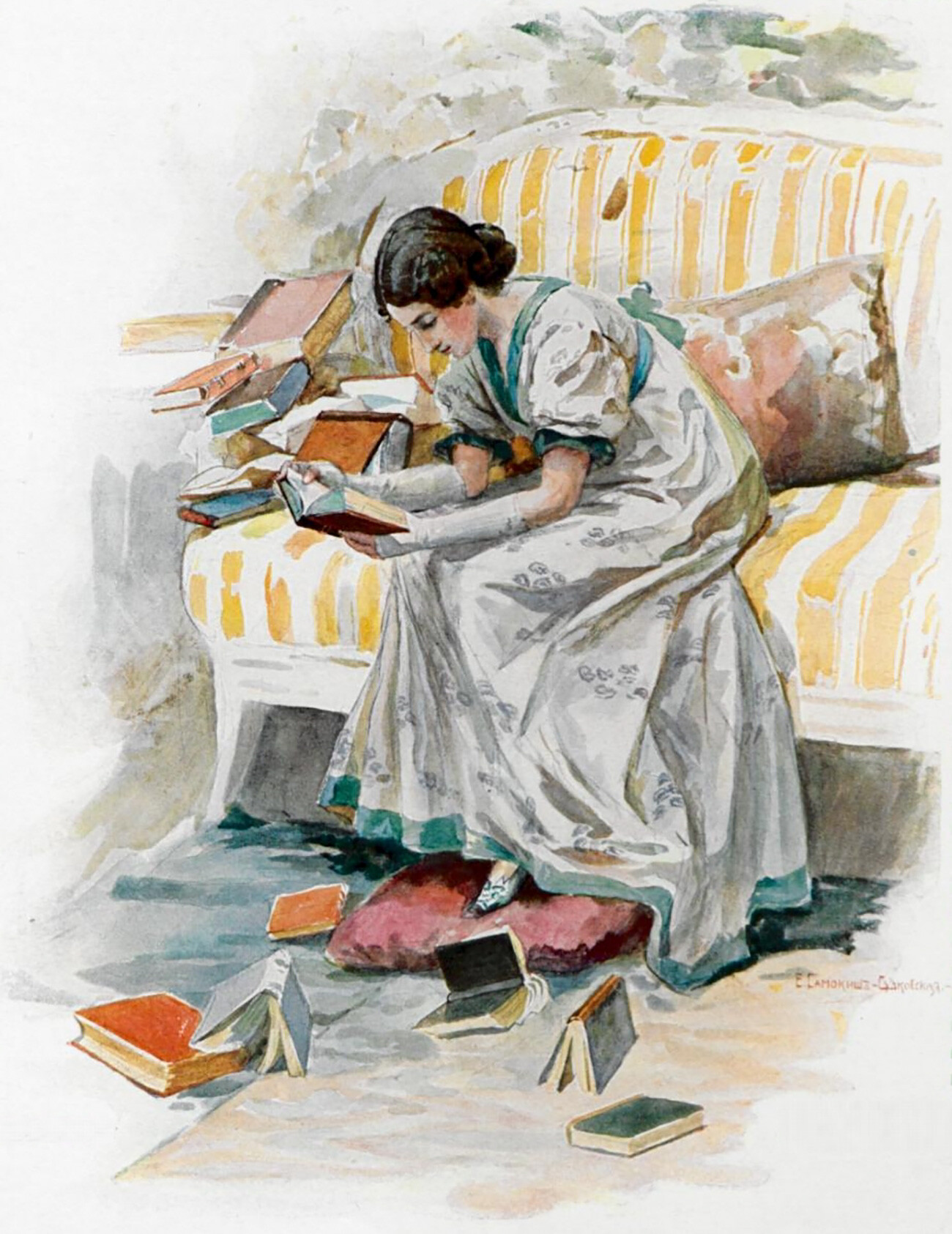
Tatyana reading books
Illustration by Elena Samokish-SudkovskayaPushkin's genius, among other things, lies in his filigree ability to rhyme. His rhymes are light and yet subtle and the verse itself sounds extremely harmonious and to the Russian ear.
But, ‘Eugene Onegin’ is not simply written in verse form. Each stanza has its own clear internal structure, which the poet follows throughout the novel. In literary studies, the term ‘Onegin stanza’ even appeared.
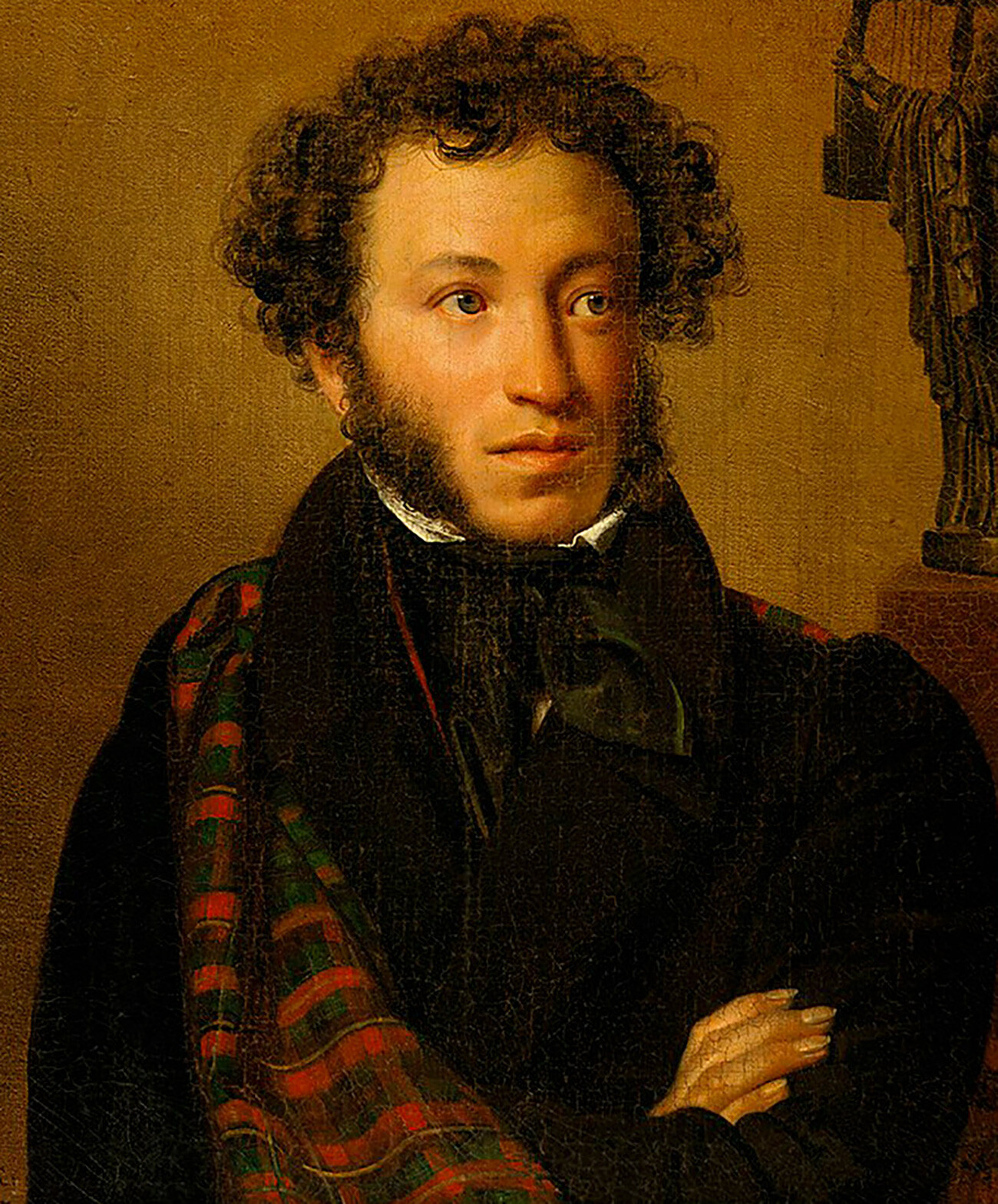
Orest Kiprensky. Portrait of Alexander Pushkin
Tretyakov galleryTranslators from all over the world still dare to translate ‘Eugene Onegin’ into their own languages and compete to see who can do the job better. There are more than 10 translations in English alone and new ones keep appearing.
The main dispute is over verse form and size: is it worth following it or is it better to focus on the content and convey the atmosphere of Pushkin's text?
Dear readers,
Our website and social media accounts are under threat of being restricted or banned, due to the current circumstances. So, to keep up with our latest content, simply do the following:
If using any of Russia Beyond's content, partly or in full, always provide an active hyperlink to the original material.
Subscribe
to our newsletter!
Get the week's best stories straight to your inbox